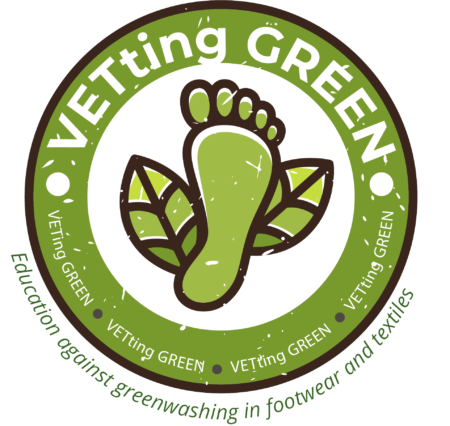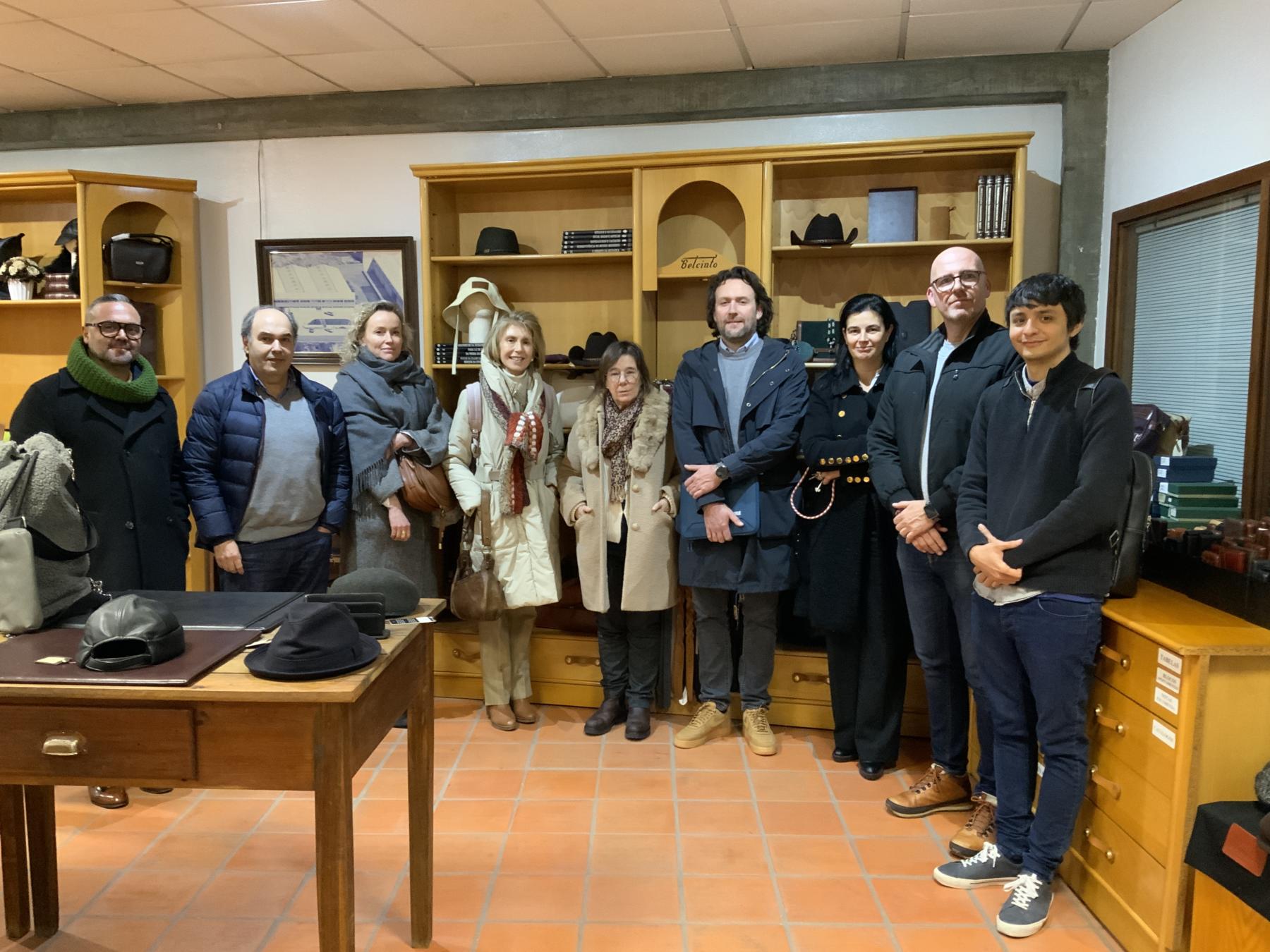Erasmus+
VETting Green


Details
Reference code:
2023-1-ES01-KA220-VET-000157867
Duration:
01 September 2023 – 31 March 2026
Total grant:
€250 000
The consortium:
- Centro Tecnológico del Calzado deLa Rioja – CTCR (Spain)
- Neo Sapiens S.L.U. (Spain)
- European Confederation of the Footwear Industry – CEC (Belgium)
- Centro Tecnológico do Calçado de Portugal -CTCP (Portugal)
- Politecnico Calzaturiero (Italy)
- Enosi Katanaloton Poiotita Tis Zois (Greece)
Contacts
Centro Tecnológico del Calzado de La Rioja – CTCR
- Website: www.ctcr.es
- Address: Políg. Industrial El Raposal. C/Raposal, 65, 26580 Arnedo, La Rioja (Spain)
Neo Sapiens S.L.U.
- Website: www.neo-sapiens.com
- Address: Hermanos Moroy 1, oficina 303, 26001 Logroño, La Rioja (Spain)
European Footwear Confederation
- Website: www.cec-footwearindustry.eu
- Address: Square de Meeûs 37, 1000 Brussels (Belgium)
Vocational Education and Training for the Footwear and Textile Industry through Awareness and Guidance against Greenwashing
Description
The global context urges to move towards a green economy based on the same understanding of sustainable production and misinformation. In line with the UN 2030 Agenda for Sustainable Development and its 17 Sustainable Development Goals (SDGs), the EU is implementing the Circular Economy Action Plan (CEAP), building block of the EU Green Deal, to become the first climate-neutral continent by 2050. Part of the CEAP fights against misleading green claims: the EU legislators are currently working on 2 proposals: the Directive on Empowering Consumers for the Green Transition, and the Directive on New Rules on Substantiating Green claims, addressing consumers and manufacturers, respectively.
The Erasmus+ Project VETting Green aims at raising awareness about the distinction between environmentally sustainable business strategies and superficial marketing tactics that amount to greenwashing. Thanks to a strong international partnership of footwear producers, VET providers and consumers representatives, the project will contribute to a shared understanding of sustainable practices and concepts to enhance transparency and avoid intended an unintended greenwashing from companies in the footwear and textile sectors and beyond.
By the end of the project, VETting Green will facilitate knowledge among future and current workers in the sector, as well as among consumers of footwear and other textile products to be able to discern sustainable business models from those that really appear to be sustainable due to greenwashing marketing techniques. Moreover, the methodology to transmit such new knowledge on greenwashing will be more attractive for VET students and professionals thanks to digital tools with a learner-centred approach.
Objectives
- To support policy makers and public authorities on the transition towards greener policies in the footwear and related sectors, while tackling unscrupulous practices to exploit consumers’ willingness to protect the environment.
- To provide intelligence on environmental issues to VET communities and current professionals in lifelong learning processes, as well as other key-actors, and leverage for companies to change their current policies to increasingly sustainable ones.
- To raise awareness on products traceability and labelling among footwear workers and consumers, to foster consumers’ conscious decisions, and to provoke a change in the footwear industry thanks to best practices and strategies to communicate transparent information on sustainability.
Expected Outcomes
- Generate knowledge at EU level within the footwear sector to correctly define, identify and combat greenwashing and misinformation.
- Raise awareness among workers and consumers to make better choices.
- Prepare VET students, teachers, entrepreneurs and current professionals in lifelong learning processes on environmental issues.
- Create digital VET tools attractive to the footwear sector, whose content can be easily replicated
Funded by the European Union. Views and opinions expressed are however those of the author(s) only and do not necessarily reflect those of the European Union or the European Education and Culture Executive Agency (EACEA). Neither the European Union nor EACEA can be held responsible for them.



